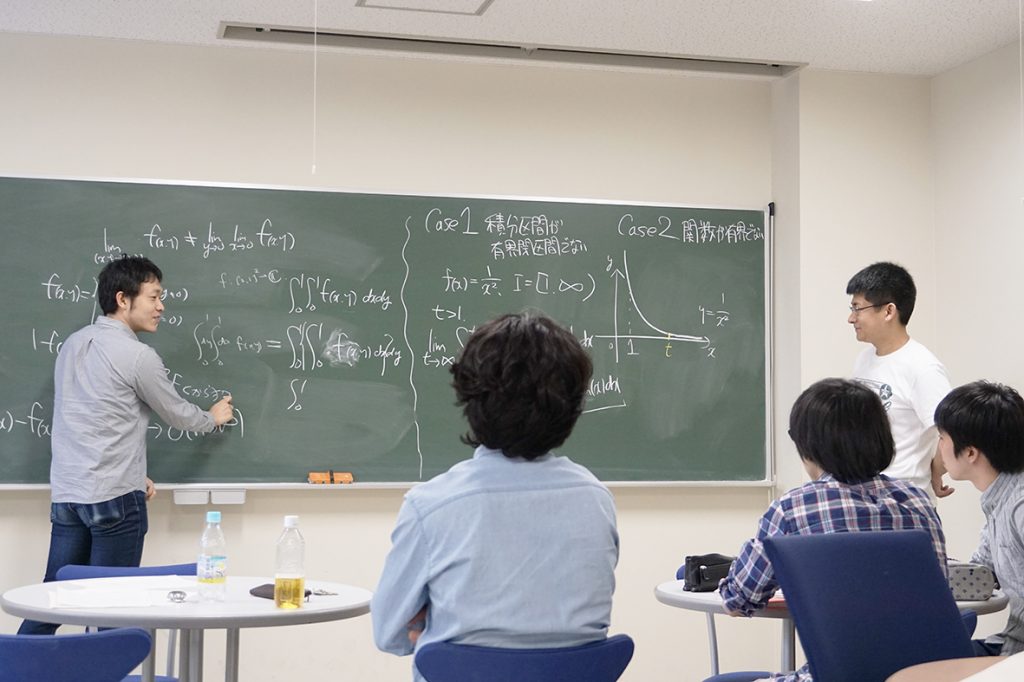
As a requirement for the completion of the Leading Program, Qualifying Examination 1 (QE1) is implemented for second-year, second-term students in the Master’s Degree Program. In QE1, you may choose a theme of either “cross-sectional research in different fields” or “integrating mathematics and science,” create a review article, and propose a research. With documentary and oral examinations, we will determine whether you have acquired—through “Interdisciplinary Lab Visits,” lectures in mathematical sciences and suchlike—comprehensive perspectives enabling you to examine surrounding areas with a broad perspective.
A particular feature of this program is that the required courses “Frontier Mathematical Sciences I and II” are offered as efforts toward linking science and mathematics. You will learn various concepts and applied examples used in mathematical sciences. This lecture course has as its aim your understanding of the universality of mathematics by growing accustomed to abstract debate, and active learning is introduced for that purpose. With regard to newly learned concepts, for example, we deepen understanding by having students discuss among themselves the necessity and usefulness of those ways of thinking, as well as by providing opportunities to actively experience mathematical ways of thinking.
In addition, with regard to this program’s mathematical links, we hold study sessions—in which instructors from the Department of Mathematics and academic researchers also participate—for preparing research proposals. Even though, at the very beginning, the program students were observed to have difficulty in reaching a mutual understanding that surpasses specific fields, currently, there are a growing number of cases in which the debate advances on the basis of mutual interests and concerns. There are also many items of great interest within students’ research content from which instructors learn; for that reason, many instructors have voiced their desire to do this continually. Initially, the integration of mathematics and science as upheld by this program was also seen as a major challenge. Recently, however, many believe that the new Doctoral Degree Program—which aims to train talented individuals who can put the integration of mathematics and science into practice—and the construction of cooperative systems for the new program is progressing quite well.
Report: Hirotoshi Kuroda (Program Faculty)

